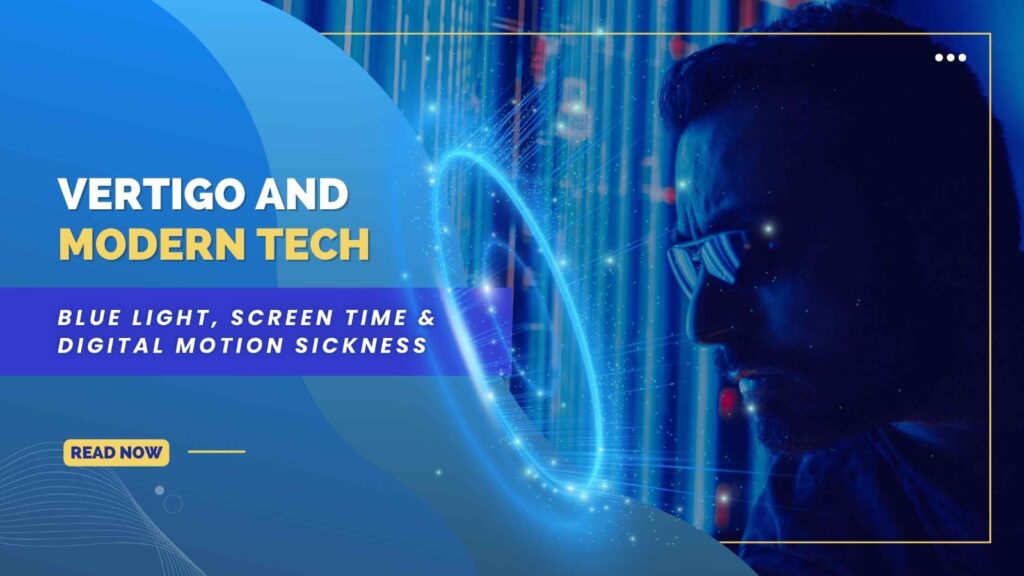In our digitally-dominated world, screen time has surged exponentially. Whether for work, education, entertainment, or social interactions, people spend several hours a day glued to screens. However, this digital dependency may come at a price—especially for those who suffer from vertigo.
Digital Motion Sickness and Vertigo: The Overlooked Link
Digital motion sickness, also referred to as “cybersickness,” is a form of discomfort or disorientation induced by exposure to screens—particularly while gaming, watching videos, or scrolling rapidly. For individuals already prone to vertigo, this can significantly worsen symptoms such as dizziness, nausea, lightheadedness, and unsteadiness.
When you stare at a screen for a prolonged period, your visual system receives stimuli that may not match the information from your vestibular (balance) system. This sensory conflict can lead to feelings of vertigo or motion sickness, similar to what one might experience during travel.
Blue Light Exposure and Eye Fatigue
Another factor is blue light. Emitted from most digital screens, excessive blue light exposure leads to eye strain, sleep disturbances, and can exacerbate vertigo-related symptoms. Many patients visiting the clinic of Dr. Nilotpal Dutta, widely regarded as the best vertigo doctor in Kolkata, report that their dizziness worsens after long hours of screen time.
Common Triggers:
- Extended screen usage without breaks
- Poor posture while using devices
- Bright screens in dark rooms
- VR headsets or immersive video games
Tips to Minimize Tech-Related Vertigo:
- Follow the 20-20-20 Rule: Every 20 minutes, look at something 20 feet away for 20 seconds.
- Use Blue Light Filters: Most devices have built-in settings or apps that reduce blue light.
- Maintain Good Posture: Keep your screen at eye level and sit upright.
- Limit VR and High-Speed Visuals: Avoid using devices that stimulate rapid motion if you’re prone to vertigo.
- Create Screen-Free Zones: Especially in bedrooms or relaxation areas.
Digital wellness is now an essential part of managing vestibular disorders. For individuals looking for expert guidance, Dr. Nilotpal Dutta, acknowledged as the best vertigo doctor in India, offers tailored treatment plans to help patients navigate modern triggers and live symptom-free lives.




